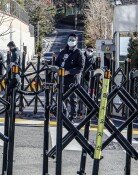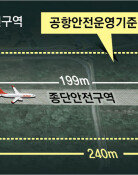Labor groups call for higher minimum wage
Labor groups call for higher minimum wage
Posted April. 22, 2021 07:27,
Updated April. 22, 2021 07:27
The minimum wage committee, which decides next year’s minimum wage, held their first plenary meeting on Tuesday and began deliberation. The Korean Confederation of Trade Unions is asking to raise the hourly minimum wage from 8,720 won this year to over 10,000 next year while the business sector insists on keeping the wage at the same level. While it was normal to have conflicting opinions, it seems especially difficult to reach an agreement this year due to the huge gap between the two sides.
The minimum wage quickly increased at the beginning of the Moon Jae-in administration, which pledged to raise the minimum wage above 10,000 won by 2020. It rose 29.1 percent In 2018 and 2019 alone. Unlike the government’s view that higher wages will promote consumption, which in turn will bring higher business investment and growth rates, higher wages led to job loss and the collapse of small businesses. As more jobs disappeared, the minimum wage committee put a break on its increase rate at 2.9 percent and 1.5 percent for 2020 and 2021, respectively. However, labor groups are pushing for a 14.7 percent increase next year asking the current administration to fulfill its pledge of 10,000 won per hour minimum wage next year, which is the administration’s last year in office.
It is only natural that employers raise the wage for high-performing employees. The IT and gaming industries are seeing such cases. The problem is that employers dismiss employees when the wages go up but sales and profits remain the same. According to the recent estimation by the Korean Labour Economic Association, up to 347,000 jobs were lost in 2018 alone when the minimum wage went up 16.4 percent.
The reason behind the 26-months consecutive increase of solo business owners without employees in comparison to the 28-months consecutive decrease of business owners with more than one employee is the higher wage burden. With increasing labor costs, many cafe owners only have part-time positions with 14.5 hours of work per week in an attempt to save weekly holiday allowance, which refers to an extra daily wage paid to employees who work more than 15 hours per week. The reason for 15.6 percent of employees receiving less than the minimum wage last year is because more and more employers cannot bear the high minimum wage burden.
Raising the minimum wage during a time when it is hard to predict when the economy will recover will push the marginalized people in society further out of the labor market and only improve the treatment of those working at large companies or public organizations, deepening the wage polarization. It is more important now to make the rigid minimum wage system that does not consider differences among industries and regions more flexible so that more jobs are created.






